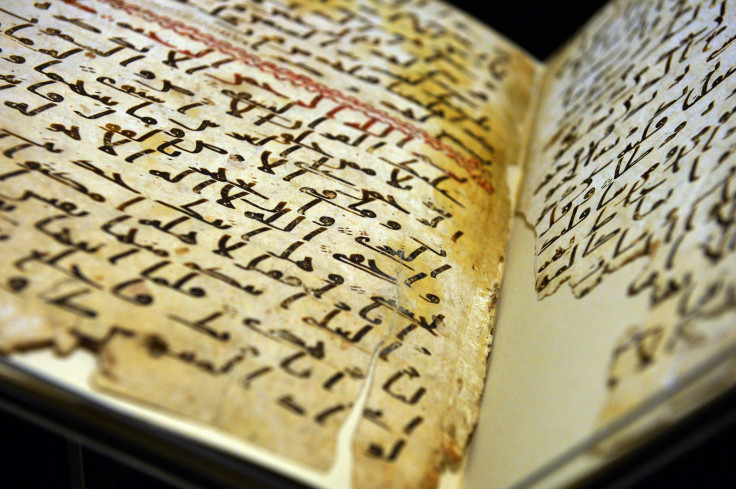World's Oldest Quran Fragments Found At University Of Birmingham

Researchers at the University of Birmingham announced Wednesday that an ancient manuscript that had been sitting for nearly a century in the university’s library was part of the world’s oldest surviving copy of the Quran. Radiocarbon dating of the parchment indicates that it is at least 1,370 years old -- around the time when the Prophet Muhammad is believed to have lived.
Muslims believe that the prophet received the revelations, which form the Quran, between AD 610 and AD 632. At that time, the message was not compiled in the form of a book.
“Instead, the revelations were preserved in ‘the memories of men.’ Parts of it had also been written down on parchment, stone, palm leaves and the shoulder blades of camels,” David Thomas, professor of Christianity and Islam at the university, said in a statement. “The tests carried out on the parchment of the Birmingham folios yield the strong probability that the animal from which it was taken was alive during the lifetime of the Prophet Muhammad or shortly afterwards.”
The final version of the Muslim holy book is believed to have been completed and standardized in about AD 650 under the leadership of Caliph Uthman, a companion and son-in-law of the prophet. The university’s manuscripts, which date back to between AD 568 and AD 645 with 95.4 percent accuracy, predate this version.
The manuscripts were part of the “Mingana collection” of over 3,000 documents from the Middle East brought together in Birmingham during the 1920s by Alphonse Mingana, a theologian, historian and a former priest. The documents, which consist of two parchment leaves, contain parts of Suras (chapters) 18 to 20, written with ink in an early form of Arabic script known as Hijazi. The university said the parchment had been, for decades, mistakenly bound with leaves of a similar Quran manuscript.
“This is indeed an exciting discovery. We know now that these two folios, in a beautiful and surprisingly legible Hijazi hand, almost certainly date from the time of the first three Caliphs,” Muhammad Isa Waley, lead curator for Persian and Turkish manuscripts at the British Library, said in the statement, adding that the discovery is a “news to rejoice Muslim hearts.”
Parts of the Quran contained in these fragments are very similar to the Quran that exists today, the researchers said.
“The person who actually wrote it could well have known the Prophet Muhammad. He would have seen him probably, he would maybe have heard him preach. He may have known him personally -- and that really is quite a thought to conjure with,” Thomas told BBC.
© Copyright IBTimes 2024. All rights reserved.






















